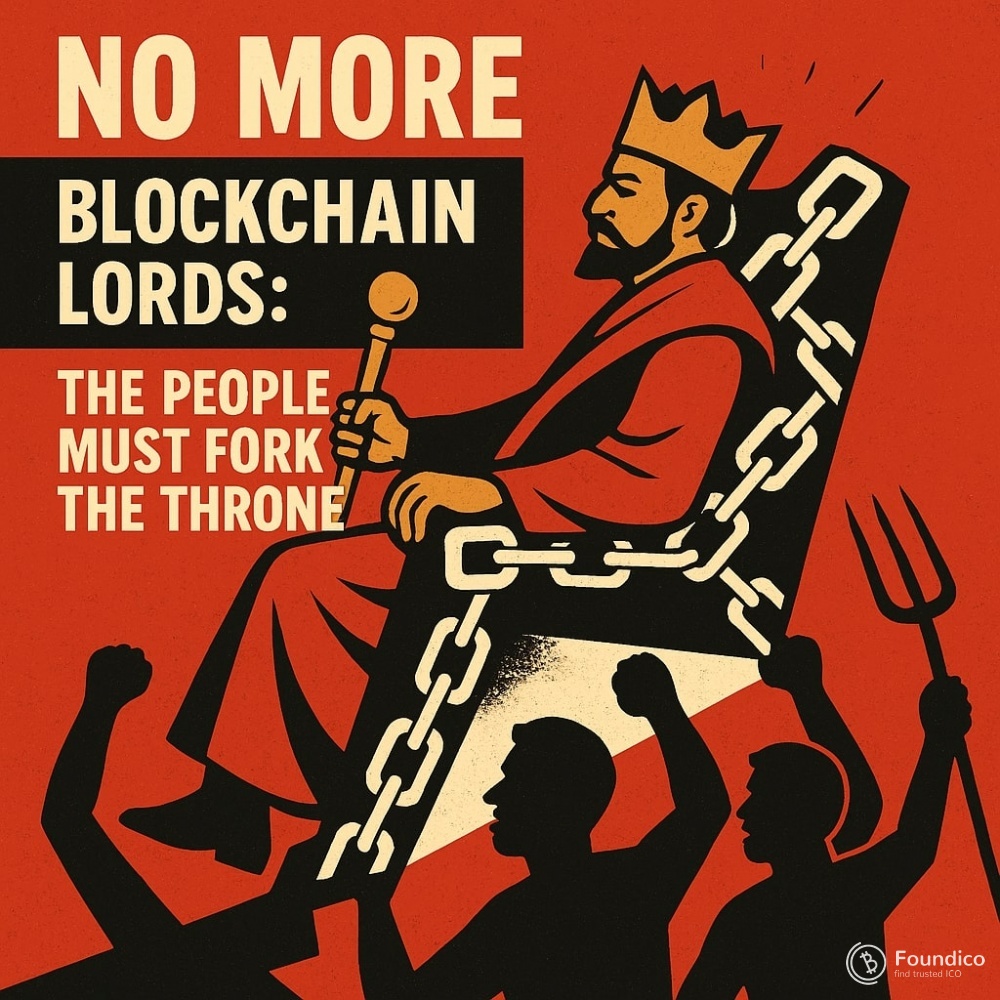No More Blockchain Lords: The People Must Fork the Throne

By Dr. Pooyan Ghamari, Swiss Economist and Visionary
The promise of blockchain technology was freedom. It was meant to dismantle centralized powers, replace opaque hierarchies with transparency, and return control of value to individuals rather than institutions. Yet, two decades into this revolution, we find ourselves facing a troubling paradox: new “blockchain lords” have emerged, replacing the very forces we once resisted. Instead of liberation, users are often trapped in ecosystems controlled by a handful of platforms, foundations, and personalities who wield disproportionate influence.
It is time to ask ourselves: have we simply traded one throne for another? And if so, how do we, the people, fork the throne to reclaim what blockchain was meant to be?
The Rise of Blockchain Lords
When Bitcoin was first introduced, it embodied a radical idea — decentralization. No central bank, no monarch, no overlord. But as blockchain matured, certain actors consolidated power:
-
Core developers with the ability to push or veto network upgrades.
-
Foundations and corporations that hold vast reserves of tokens, controlling governance by sheer wealth.
-
Influential figures and influencers, whose words can move markets overnight.
These lords of blockchain are not unlike the monarchs of old: they promise stability, yet they preserve their dominance by concentrating decision-making power in narrow hands.
The Illusion of Decentralization
Most networks today claim decentralization, but many are decentralized in name only. A small number of validators, miners, or governance token whales often determine outcomes. This structural imbalance undermines the democratic spirit that blockchain was supposed to represent.
True decentralization is not measured by the number of nodes but by the distribution of power and accountability. If a few can dictate the rules, then the people remain subjects rather than sovereigns.
The People’s Fork
What, then, must be done? The answer lies in forking the throne — breaking away from entrenched power centers to reclaim agency. Forking is not merely a technical event; it is a social and political tool. It represents the community’s right to dissent, to create alternatives, and to reject rulers who betray the collective vision.
To truly fork the throne, we must:
-
Reclaim Governance – Shift voting rights away from token wealth toward reputation, contribution, and verified community participation.
-
Disperse Control – Design consensus mechanisms that prevent oligarchies of miners or validators.
-
Champion Interoperability – Encourage cross-chain solutions so no single blockchain becomes an empire.
-
Educate and Empower – Ensure that ordinary participants understand their rights and responsibilities in these networks.
A Call for Blockchain Democracy
The throne must not exist. There should be no kings, no lords, and no dynasties in a system designed to belong to everyone. Instead, blockchain should evolve into a commons of value where rules are transparent, leadership is accountable, and power is always contestable.
If the people fail to act, then blockchain risks becoming nothing more than a gilded cage — decentralized in structure but centralized in spirit. The fork is our tool, our protest, and our path forward.
We stand at a pivotal moment in blockchain’s history. The technology has given us the tools, but it is up to us to shape the culture. Will we accept new rulers disguised as innovators, or will we demand a truly decentralized system?
The answer lies with us, the community. It is time to rise, to fork, and to ensure that the throne is not inherited but dismantled. Only then will blockchain fulfill its true destiny — not as the domain of a few, but as the sovereignty of all.
